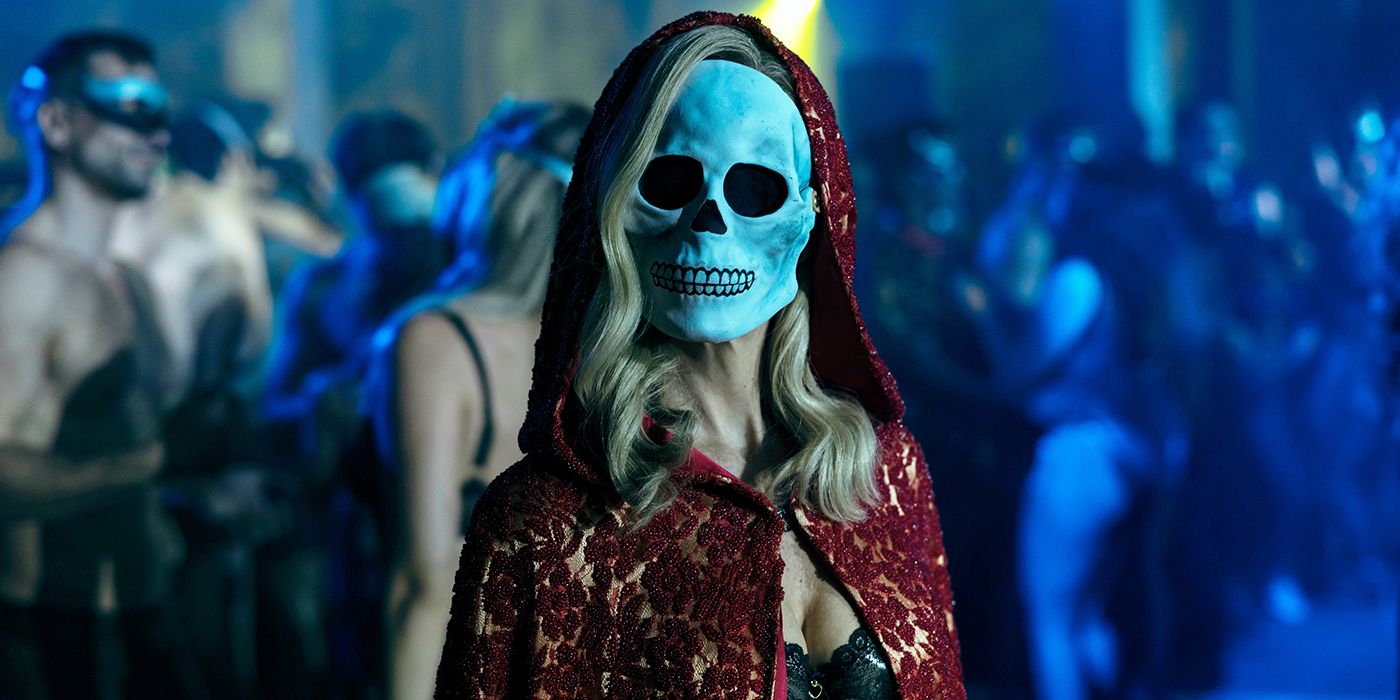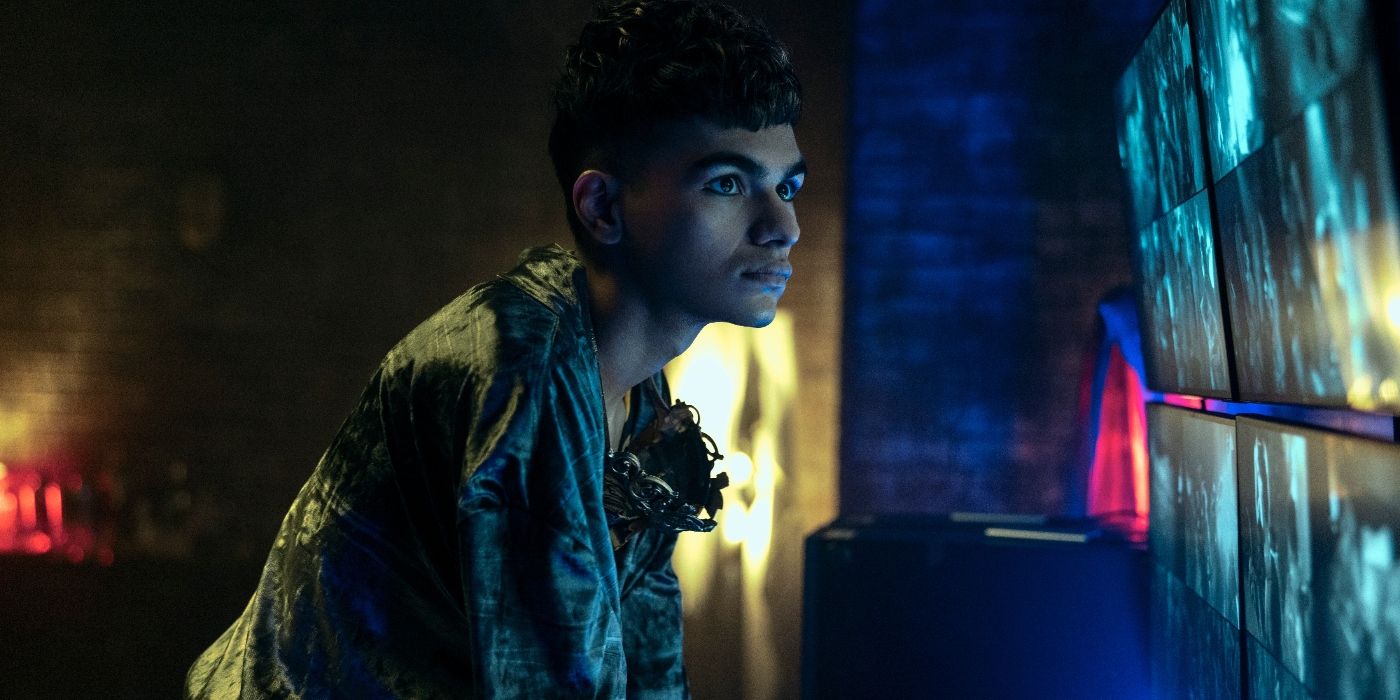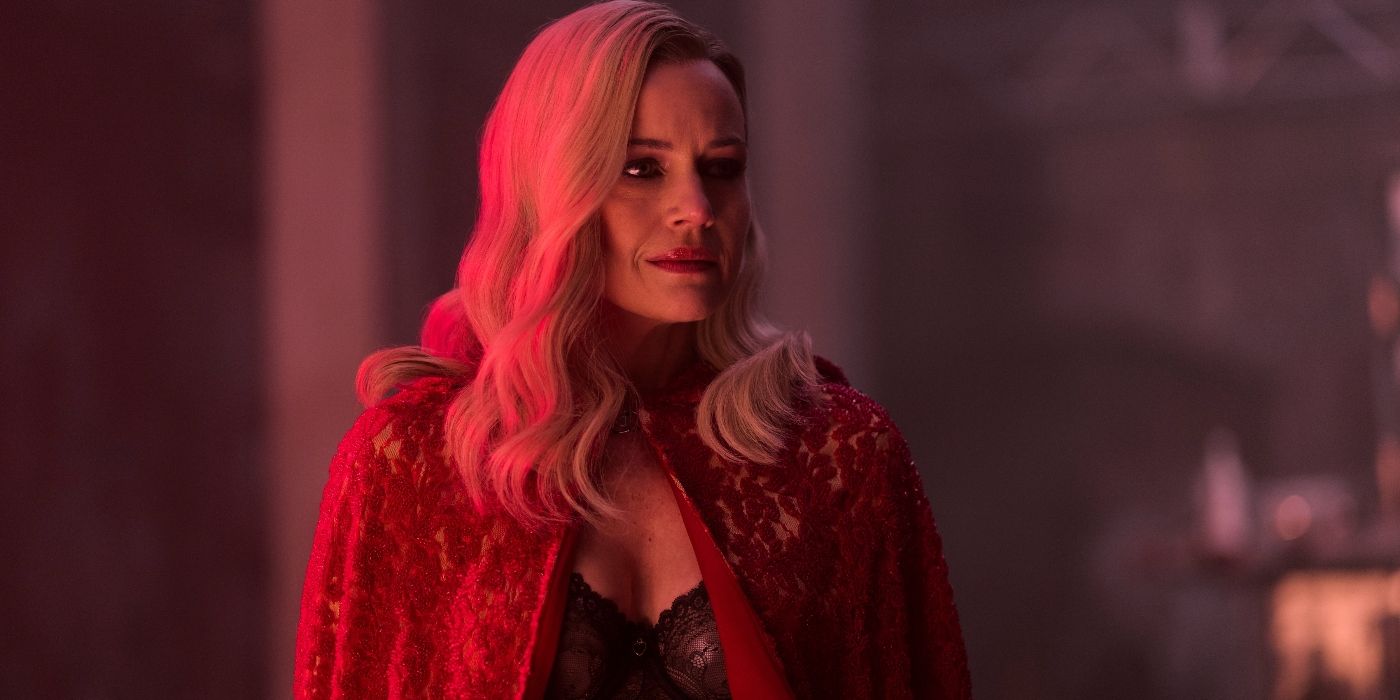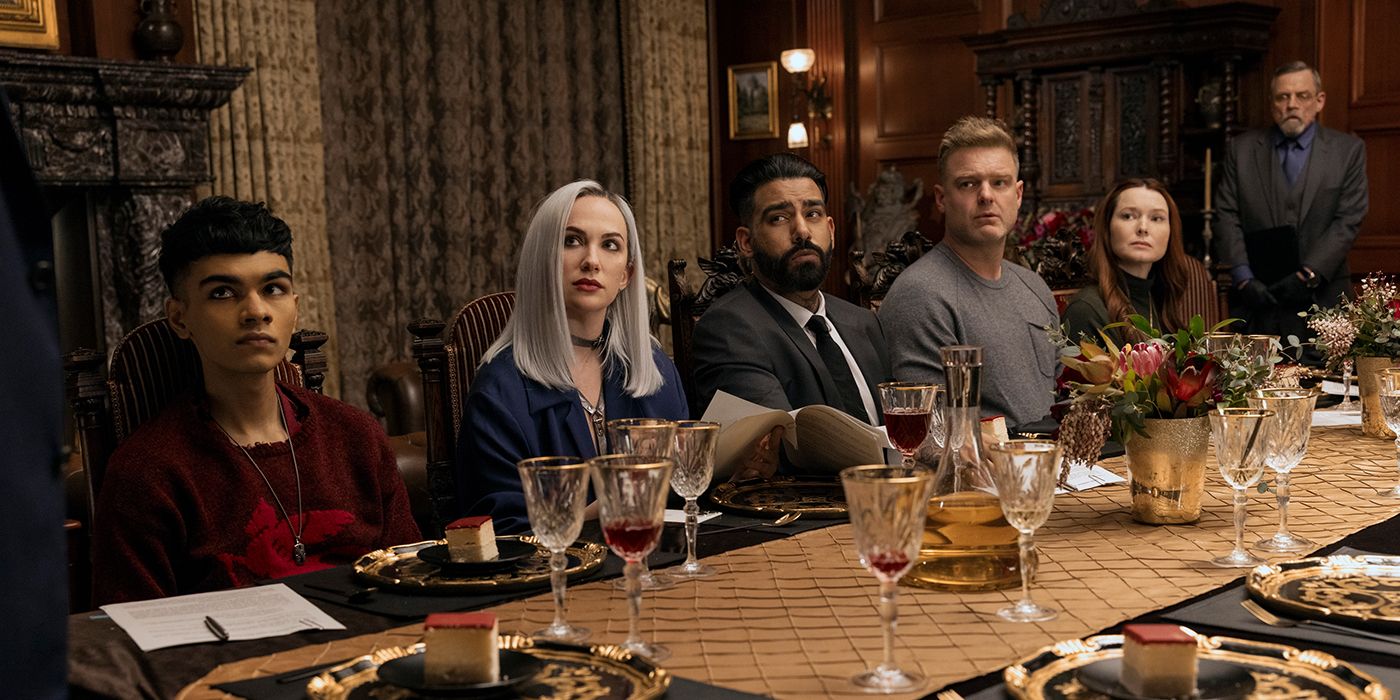Editor's note: The below contains spoilers for The Fall of the House of Usher.
The Big Picture
- The Masque of the Red Death reflects Edgar Allan Poe's personal experiences with disease and the indifference of the rich towards suffering.
- The adaptation in The Fall of the House of Usher emphasizes the consequences of reckless choices and the belief that money and power can protect against death.
- The story serves as eat-the-rich horror, highlighting the revenge fantasy against wealthy individuals who prioritize their own interests over the well-being of others.
The Masque of the Red Death was written by Edgar Allan Poe and published in 1842, five years after a devastating cholera pandemic that swept through Asia, Europe, and the Americas from 1826 to 1837. This, and the added context of Poe losing several loved ones to other diseases like tuberculosis, explains the sense of doom that radiates from this short story. He and many others saw many rich people up and leaving for greener pastures in country mansions, dead bodies piling up in the streets, and no one knowing what caused the disease or how to cure it. It just happened, and so many men, women, and children died, and no one with power did anything about it.
The Masque of the Red Death tells the tale of Prince Prospero, who, in the wake of a horrific plague spreading among his subjects, decides to throw a big party in his palace. All the landed gentry are invited to a masquerade of indulgence and revelry while thousands suffer and die from the Red Death outside. Prospero believes that locking himself and his rich friends inside the palace will keep them all safe, but the party becomes disturbed by a mysterious figure draped in red, with the mask they wear resembling a corpse. Feeling slighted by this reminder of the responsibilities he's neglected, Prospero chases this gate crasher through the castle but dies very suddenly when he catches up. The other members of the court remove the mystery guest's costume to reveal that nothing is underneath but the Red Death itself, which everyone at the party succumbs to.
How Does 'The Fall of the House of Usher' Adapt 'The Masque of the Red Death'?
The story is somewhat loosely adapted in the second episode of Mike Flanagan's latest limited series The Fall of the House of Usher, a medley of Poe's most gruesome tales. In this episode, appropriately titled after the short story, we follow the events leading up to the death of the youngest Usher child Prospero, Perry for short (Sauriyan Sapkota). His family is in turmoil, facing a massive indictment for their pharmaceutical empire's hand in the very real opioid crisis, and has recently discovered that someone has been snitching to the FBI in secret. Those who aren't quick to point fingers at Perry don't seem to take him very seriously at all; he's "Gucci Caligula," a layabout rich boy who has yet to contribute anything to the family legacy. His pitch to his father for a franchise of nightclubs gets rejected, so he goes rogue, discovers a condemned building that the family company Fortunato Pharmaceuticals owns, and decides to throw a rager with no consequences, no rules, and no consideration for anyone's safety — including his own.
It's one of the most gnarly and excessive bloodbaths in the entire show. Perry's death is accompanied by the highest body count as a whole nightclub full of people is hit by a mixture of corrosive chemicals through the sprinklers hanging above. In the end, Perry's one night of Elysium (which is actually just a front for mass blackmailing) looks like a scene right out of Brian Yuzna's Society, with bodies melting together and forming a puddle of peeling skin and burning flesh. Overseeing this is the mysterious Verna (Carla Gugino), who drops into the party with a red cloak and a skull mask, very tellingly ensuring the waitstaff and security leave before the massacre begins.
How Does the Red Death Come for the House of Usher?
While the massacre sets it apart from the other Usher deaths later in the series, it still bears some similarities to the rest in meeting the consequences of irresponsible and damaging choices. Of course, the Usher family's choices are fueled by different things — paranoia, ambition, revenge — but above it all, the belief that their money and power placed them above the rules, even ones put in place to keep them from dying horrifically. Don't step into an enclosure with adrenaline-filled chimpanzees, Camille (Kate Siegel), and don't hold a party in a condemned building, Perry. Verna tries to prevent deaths more than she directly causes them, trying to form some blockade between the Ushers and what they'll inevitably do to themselves. You can escape a lot of things with money and power, but you can't escape death.
This is why The Masque of the Red Death works so well for this interpretation of The Fall of the House of Usher, arguably more than the story that shares its name. In the original story, you feel bad for Roderick and Madeline, their deterioration is tragic and unwarranted. Do you feel that way for Prince Prospero? Do you feel that way when a pod of orcas sinks a billionaire's yacht? Do you feel that way about the Usher family in Flanagan's story? Perry was a young guy who fell into the high life as a teenager, and there's absolutely nuance in the emotional effect it had on him, but he was still ready to put all of his guests, including his sister-in-law, under his thumb.
'The Fall of the House of Usher' Is Eat-the-Rich Horror
The Masque of the Red Death, and Flanagan's series, is a story about class, or at least can be viewed through that lens very easily. It's a revenge fantasy against those who have so much but don't lift a finger for those they deem as below them, and when they do, it's only for show. We've seen a lot of strikes in the last few months, a lot of workers taking up arms against corporate overlords, SAG-AFTRA is still on the picket line. It's hard to garner a regular person's sympathy for the ultra-rich, and we're seeing a lot of horror stories that allow us to revel at their expense — especially a family like the Ushers, who don't even seem to love each other that much, and have caused so much destruction in the realm of Big Pharma.
What we have here is very interesting thematically, especially tying it together with Poe's work. The Fall of the House of Usher is a story both created and canonically set after a global pandemic, where we saw many millionaires and billionaires acting unethically in their own self-interest throughout (Perry definitely would've thrown a COVID party). It's a story about an obscenely rich family who harmed countless people whom they were supposed to be healing to add to a money pile, and who subsequently meets their reckoning, their collapse under suspicious and nightmarish circumstances. In a literal sense, we are seeing the house of Usher's fall, but in the spiritual sense? In the sense of themes, historical context, and how it makes the audience feel? We're seeing darkness and decay, and the Red Death holding illimitable dominion over all.
All episodes of The Fall of the House of Usher are available to stream on Netflix.




